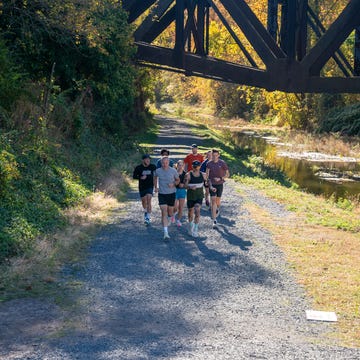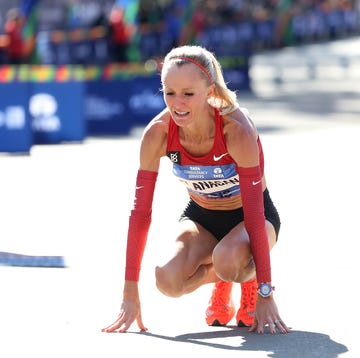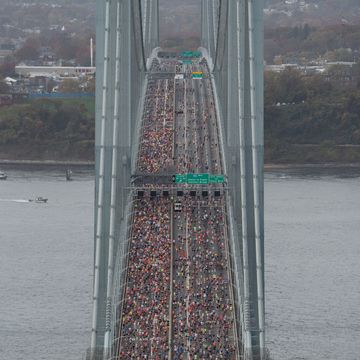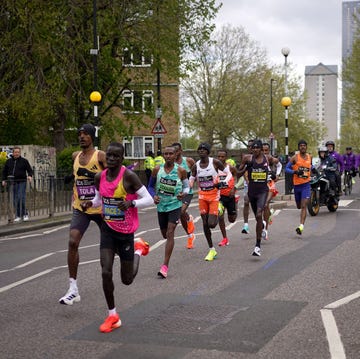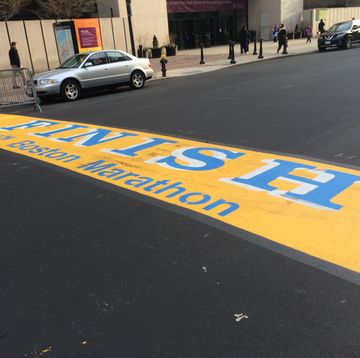It's in the nature of running, especially the marathon, to infuse races with meanings beyond sport. Often those meanings affirm life after tragic death, as this year's Boston will do.
The San Francisco Bay to Breakers was created to help that city recover from the disastrous earthquake and fire of 1906. Comrades Marathon in South Africa and Kosice Marathon in Slovakia paid tribute to the fallen of World War I and affirmed the qualities of courage and solidarity that had emerged even stronger from the carnage. The first Olympic marathon in 1896, in Athens, celebrated the new freedom of Greece after centuries of occupation. The first Boston in 1897 followed that example by celebrating the revolutionary ride of Paul Revere, which is why it's run on Patriots' Day, now always a Monday.
Boston's annals are full of stories of the race acquiring such deeper significance. The most compelling happened in 1946, when an emaciated once-elite runner named Stylianos Kyriakides came from Greece--when that country was desolate with famine and civil war--and somehow won. As he broke the tape on Boylston Street, he cried out, "For Greece!"
Especially this year, the story is worth retelling. It's truth beyond the most emotional fiction. Kyriakides won the Balkan Games marathon in 1934 and placed 11th in the Berlin Olympics (2:43:20). There he made friends with a feisty American called Johnny Kelley, who invited him to his own favorite race, the Boston Marathon. Kyriakides came in 1938, ran with the leaders, but was forced to drop out when burst blisters left him running on raw flesh.
He suffered much worse during the Nazi occupation of Greece, including malnutrition and random arrest. One night, grabbed off the street for "questioning," he found his life spared only because he was carrying his Berlin Olympics credential. Kyriakides was the only man arrested that night who escaped the firing squad. On another occasion, German troops were ransacking his home when the officer recognized a certificate from the Berlin Games and moved on.
After Germany was defeated, Greece fell into starvation and internal conflict. Convinced that he had been spared for a purpose, Kyriakides, at age 36, dedicated himself to training for Boston. He was given food by neighbors, found sponsorship for the journey and was hosted for three weeks before the race by Greek-Americans who fed him adequately. He survived one last crisis when the race's medical officials at first refused him permission to run because of his haggard condition.
After a big pack had stayed mostly together, the race came down to a one-on-one between the two friends. Kelley was determined to avoid a seventh time as runner-up, but Kyriakides was committed to winning for a greater cause. He dropped Kelley near Kenmore Square and won in 2:29:27, the world's best time that year. He wept for joy as he spoke with journalists, who were struggling to describe this almost impossible victory.
The Greek people found the right words. Kyriakides had run with a note carrying the traditional Spartan message "Return with your shield or on your shield" and on the other side Pheidippides' legendary cry "Rejoice, we conquer!" After traveling the U.S. raising money and gifts for Greece, he was welcomed to Athens by a crowd of a million and headlines such as "Kyriakides, Our One and Only Cause for Good News."
He died in 1987. At the Boston Marathon 1-mile mark, a statue by Mico Kaufman, The Spirit of the Marathon (now under the care of the 26.2 Foundation), commemorates the linked figures of Kyriakides and Spyridon Louis, the Greek who won the first Olympic marathon. Runners, spare it a glance.
In 2001, Richard A. Johnson curated an exhibit entitled "Kyriakides, Running for the Human Race" at the Boston Sports Museum.
That will apply to every runner in this year's Boston Marathon, following in the footsteps of Stylianos Kyriakides.
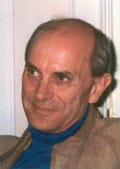
Roger Robinson is a highly-regarded writer and historian and author of seven books on running. His recent Foods That Cut Inflammation to Improve Performance How to Increase Mileage Running Running Times How to Better Pace a Marathon Based on Effort Runner’s World contributor, admired for his insightful obituaries. A lifetime elite runner, he represented England and New Zealand at the world level, set age-group marathon records in Boston and New York, and now runs top 80-plus times on two knee replacements. He is Emeritus Professor of English at Victoria University of Wellington, New Zealand, and is married to women’s running pioneer Kathrine Switzer.


